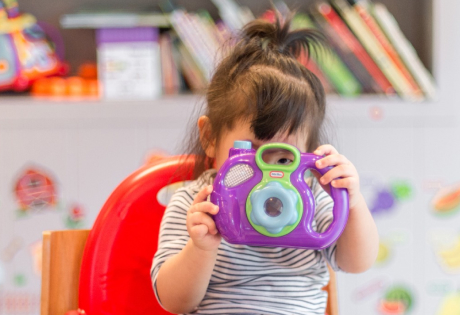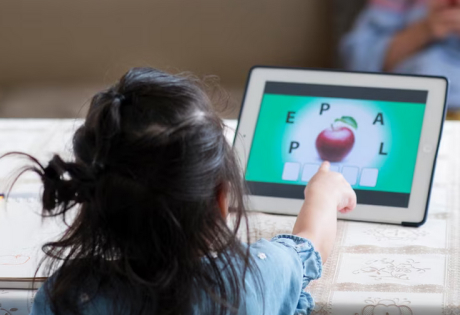

Jakarta Children Growth Center is a specialized facility designed to cater to the overall development and well-being of children, typically from infancy to adolescence. This center offer a wide range of services and programs that focus on nurturing children’s physical, cognitive, emotional, and social growth.
Child Counselling
Counselling for children and teenagers is designed to assist and support them in dealing with their emotions, behavior, trauma, anxiety, school-related difficulties, developmental problems, etc. Our clinical child psychologist are professionals who utilize age-appropriate techniques and interventions to help children express their feelings, develop coping skills, and navigate challenges. We tailor relational-focused, evidence-based therapies to maximize child’s potential in their life journey.


Psychological Therapy (Psychotherapy)
A therapeutic process that involves working with mental health professionals to address emotional, psychological, and behavioral concerns. It provides a supportive and confidential environment for individuals to explore their thoughts, feelings, and experiences in order to improve their well-being and quality of life. Through regular sessions, therapists help clients develop insight, learn coping skills, change negative patterns of thinking or behavior, and promote personal growth and self-empowerment.
Therapy can be effective in treating a range of mental health conditions, such as anxiety, depression, trauma, addiction, relationship issues, stress management, and also issues in sensory motoric, and early childhood development. It is a collaborative process that encourages individuals to actively participate in their own healing and transformation, leading to improved emotional well-being and a more fulfilling life.
Neurofeedback therapy is a non-invasive treatment that encourages the brain to develop healthier activity patterns. This biofeedback treatment helps clients, through a sophisticated computer-based program, to overcome neuron-related disorders, including attention-deficit/hyperactivity disorder (ADHD), anxiety, depression, and insomnia.
Speech therapy is a specialized treatment to assist children with speaking difficulties and speech delay. Speech therapy can be an effective modality to treat various speech-related disorders, including language disorders, dysphagia/oral feeding disorders, and speech-related issues as a comorbidity of other clinical circumstances.
Occupational Therapy (OT) is a specialized therapy that utilizes techniques to help people overcome problems of completing everyday tasks or activities – including physical, sensory, or cognitive challenges. OT might help children who struggle with basic life skills such as bathing, brushing teeth, self-feeding, and the fine motoric skills needed for learning.
Art therapy is a clinical treatment that uses the creative process of making art to improve a person’s physical, mental, and emotional well-being. For children, art therapy can be an effective approach to express thoughts, and feelings that are too confronting to be communicated through words. For treatment, art therapy can be an effective technique to regulate emotions, reduce anxiety, and increase self-confidence.
Through play therapy, children process and communicate emotions and problems they may struggle to articulate through language. Our therapists can also help children deal with complex emotions and possible unresolved trauma.
Music therapy involves the clinical use of music to meet psychological, intellectual, and educational goals. This therapy can help individuals address issues, such as: stress management, difficulty in expressing feelings, memory and communication problems, poor overall wellness, and other psychological issues.
Neurodiversity is an umbrella term that inclues a range of neurodevelopmental disabilities that impact brain functions. Neurodiverse children may have one or more of the following diagnosis: Autism spectrum disorder (ASD), attention deficit/hyperactivity disorder (ADHD), learning disabilities, and sensory processing issues. We believe that human beings are relational. Through our program, we equip and walk alongside parents as they learn to establish a strong relationship with their neurodiverse children.
- Neurofeedback Therapy
- Speech Therapy
- Occupational Therapy
- Play Therapy
- Art therapy
- Music Therapy
- Couple and Family Therapy
- Early Childhood Sensory Perceptual Screening
- Parents Support Group
- Social Skill Support Group

Psychological assessment
Psychological assessment is a process that involves the systematic evaluation and measurement of an individual’s psychological functioning and mental health. It is conducted by trained professionals, such as psychologists, to gather information about a person’s cognitive abilities, emotional well-being, personality traits, and behavioral patterns. Psychological assessments utilize a variety of standardized tests, interviews, observations, and self-report measures to gather data and gain a comprehensive understanding of an individual’s strengths, weaknesses, and overall psychological profile. The results of the assessment are used to diagnose mental health conditions, inform treatment planning, provide recommendations for intervention or support, and enhance self-awareness and personal growth. Psychological assessments are commonly used in clinical settings, educational institutions, forensic evaluations, and occupational settings to aid in decision-making, treatment planning, and improving individuals’ overall well-being.
The Child Comprehensive Evaluation is a thorough assessment of child’s developmental milestones to get a deeper understanding of areas of strengths and growths.
Intelligence Quotient (IQ) tests are standardized tools designed to measure human cognitive abilities in several domains, including verbal comprehension, visual-spatial recognition, fluid reasoning, working memory, and processing speed.
Evaluation (CBE) involves general examination of a child’s behavioral patterns against established criteria. The evaluation includes a review of the child’s behavioral history. Parents and children will be asked to fill out a series of questions and checklists as part of the assessment.
Academic/School Readiness Test (ASRT) evaluates a child’s readiness for school from academic, emotional, and psychomotor perspectives. The test will assess intelligence capacity, sensorimotor development, and emotional development.
Career Pathway & Exploration Test (CPET) consists of a battery of tools that assesses an individual’s cognitive capacity, personality, and work patterns, to identify personal strengths and preference towards a particular career field or major.
- School / Academic Readiness
- Intelligent Quotient (IQ) Test
- Career Pathway / Aptitude Test
- Recruitment
- Promotion
School
- Breaking the Silence: Nurturing Mental Well–Being in Student Life
- Building Resilience: Strategies for Coping with Stress and Adversity
- Empowering students in the Digital World
- Career Exploration: Discovering Passions and Mapping Future Pathways
- Time Management, Self – Care & Stress Reduction
- Empowering Youth: Skills and Opportunities for Youth Leadership and Engagement
And many more…


Child and Adolescence
- Strategies for Emotional Regulation and Well-being
- Peer Pressure and Substance Abuse Prevention
- Learning through Play: Fun and Educational Activities for Children
- Creative Expression: Exploring Art and Music for Self-Discovery
- Building Healthy Friendships: Social Skills and Cooperation for Children
And many more…
